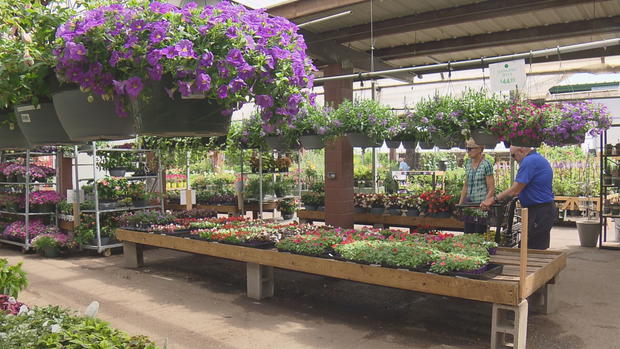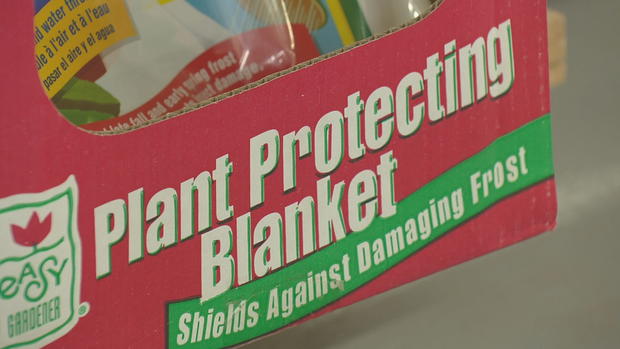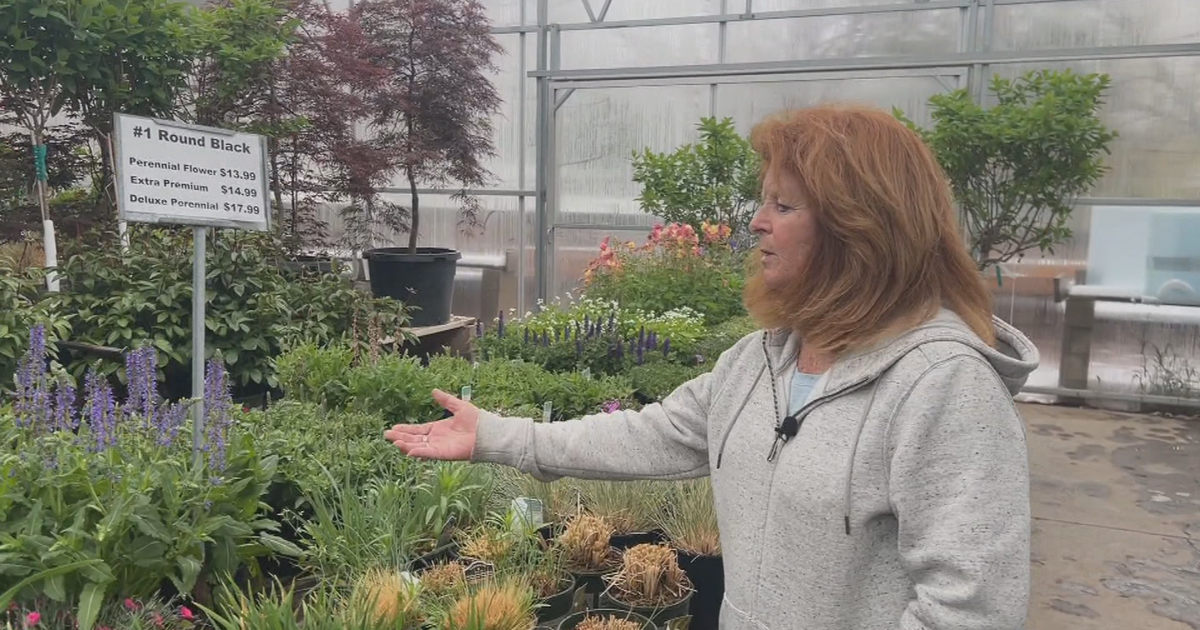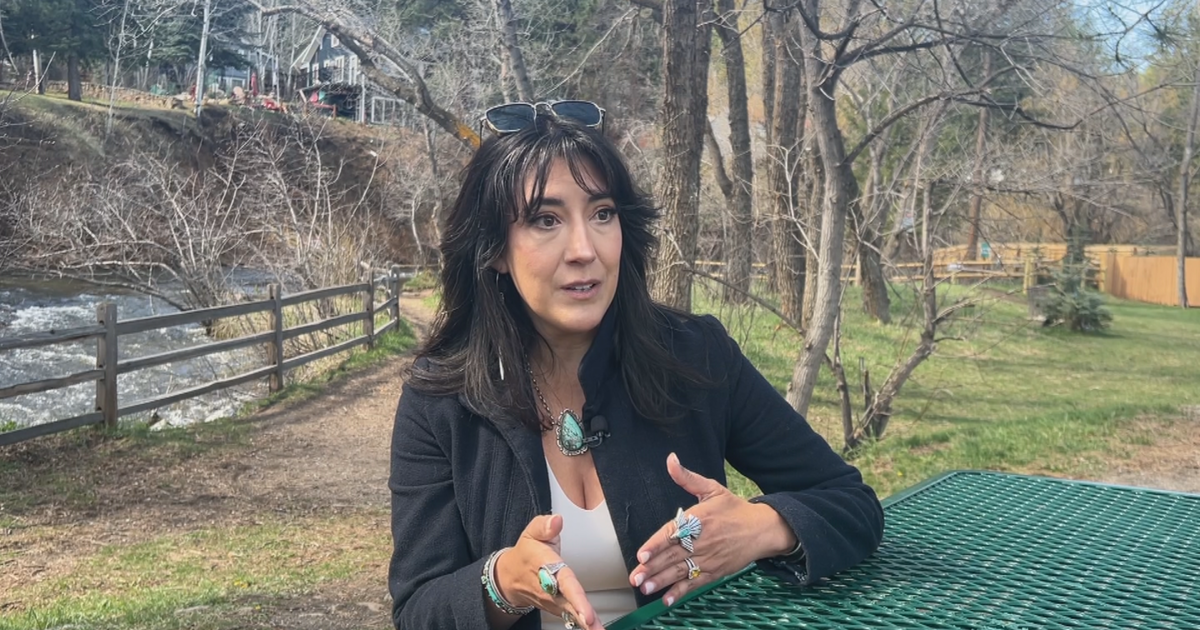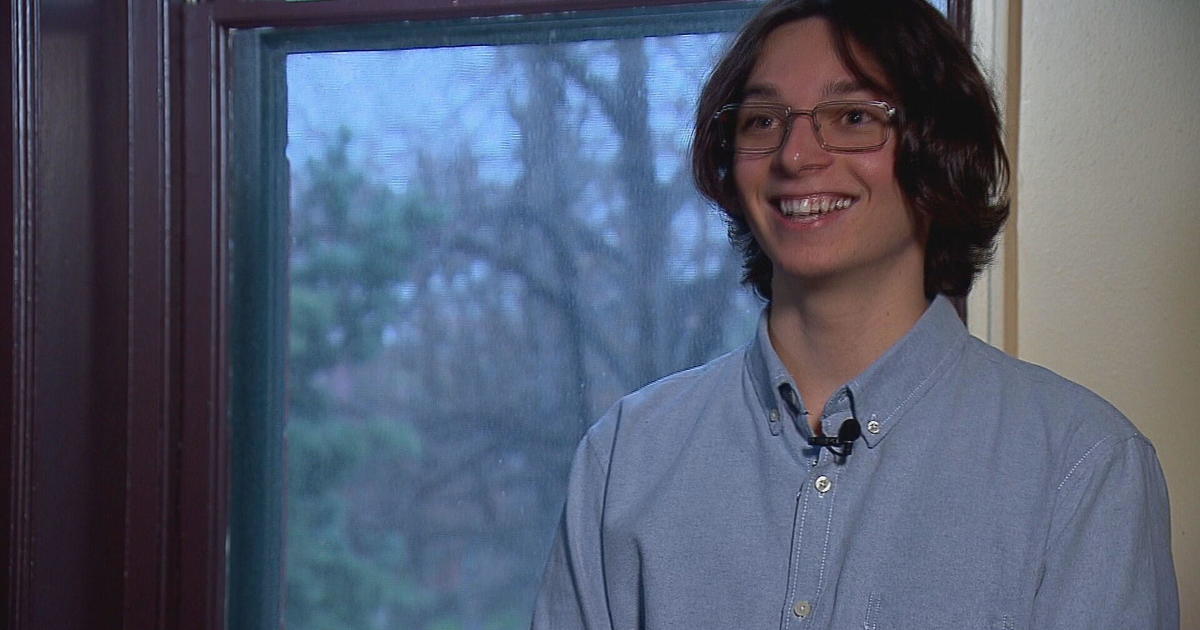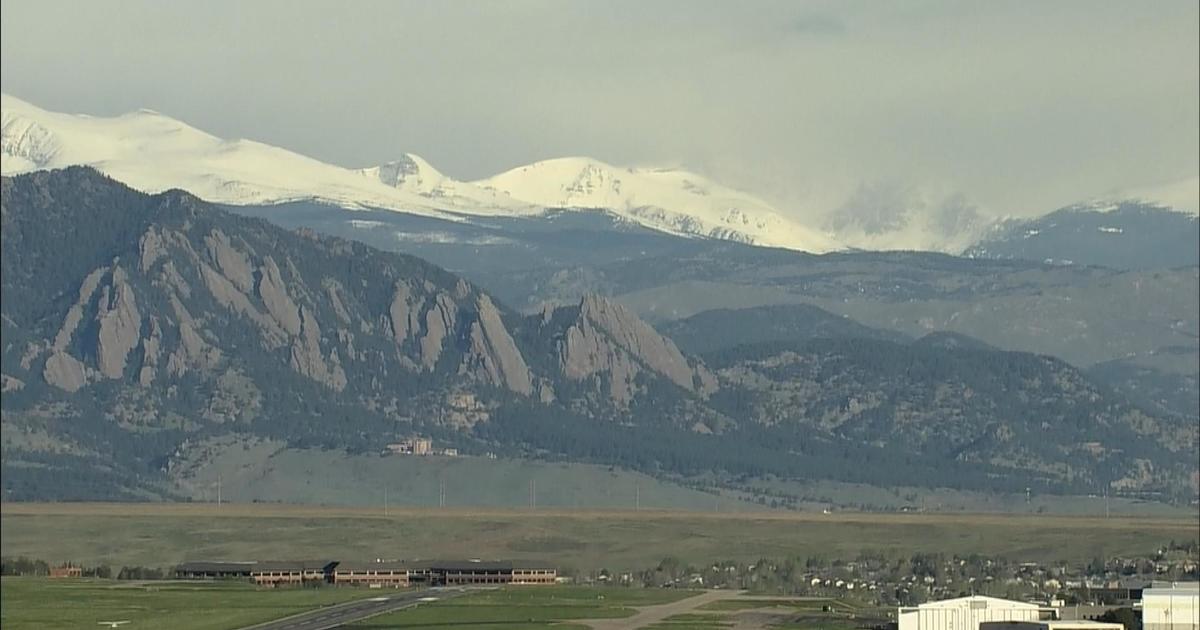Coloradans Rushing To Protect Plants From Wallop Of A May Storm
LAKEWOOD, Colo. (CBS4) - With an epic May storm winding up to punch Colorado, people are flooding garden centers and extension services with questions.
"What are we supposed to do about our plants? should we not buy them? should we bring them back? Do we cover them up? What do we do?" repeated Nancy Szilagyi, store manager at O'Toole's Garden Center and a product of the CSU Master Gardner program.
"I planted early, which I shouldn't have done. I know better because this happens every year," said customer Christa Gibson of Indian Hills. "But I wanted color in my yard, so here I am, buying 11 blankets."
In Evergreen, Jim and Kristina Sherwood were working on their locally award-winning garden.
"So we'll be sitting out here enjoying the garden and our fireplace as we watch the blizzard unfold," said Jim.
They will put down tarps and blankets. Some of what they grow is more precious.
"These are my mother's 70-year-old peonies from Chicago transported on a plane," said Kristina as she showed off the flowers. "But they have come back every year for the last 15 years and they are amazing."
A lot of people who have planted early are faced with protection duties now.
"The frost blankets will bring things up about eight or nine degrees, and that's enough to really protect most things," said Szilagyi.
They were nearly sold out of frost blankets, but were bringing more over from a warehouse.
Among her other suggestions:
"If you can put towels or heavier quilts and things over your plants, it will bring that up about five degrees which is enough for most things to be protected. I have often used towels, you know heavy beach towels with a plastic bag or a sheet of plastic over it. The plastic protects it from the towel getting wet and freezing itself, which doesn't help the plants at all."
"The second thing is commonly known as a wall of water. That's a brand, and it's just a tubular little circle thing that goes around your plant, filled with water. That can protect plants as well.
Here's what would be an idea: Clear plastic bottles filled with warm water, around the plant. They'd have to be taller than the plant though. And then in like a little circle right around them."
"Sometimes people will make little tents with bamboo and do that. You don't want to make your tent too far above the plant because then you allow that cold air to get in underneath there. Here's your plant, you do want to put your sticks above that, and then you make a tent. Just put sticks around and in the middle make yourself a little tent."
"Twenty-eight (degrees) and below is considered a hard freeze, but that also has to be at a sustained period of time. If it's going to be an hour or less we're going to be OK except for the most tender plants. If it's even going to be an hour and half, we're going to be OK, but a lot of times our weather just dips down for that little big right before sunrise and gets to that super cold."
"If anything managed to make it through a hard freeze and heavy snows, the wind can still tear it down. So we will have sustained some damage from those hard winds from the newer growth especially on trees. The newer growth is much more tender and green instead of woody so it is more susceptible to wind damage. You want to stake them for a year, but after that if you don't stake them. If you take the stake off, they learn to be strong in the wind without breaking… It's just like our kids, if we don't teach them to be strong on their own they always will depend on us. When they're 47 they're still going to be in the basement."
"Basil is a drama queen. Basil doesn't like it under 40 degrees. It'll shrivel up and cry… Begonias, Impatiens. Anything that's more of that fleshy kind of stem. Even in the mid 30s and lower those will turn to mush."
She also suggests you use your garage for storage if you can put your plants there. Even an unheated garage is usually ten degrees warmer.
